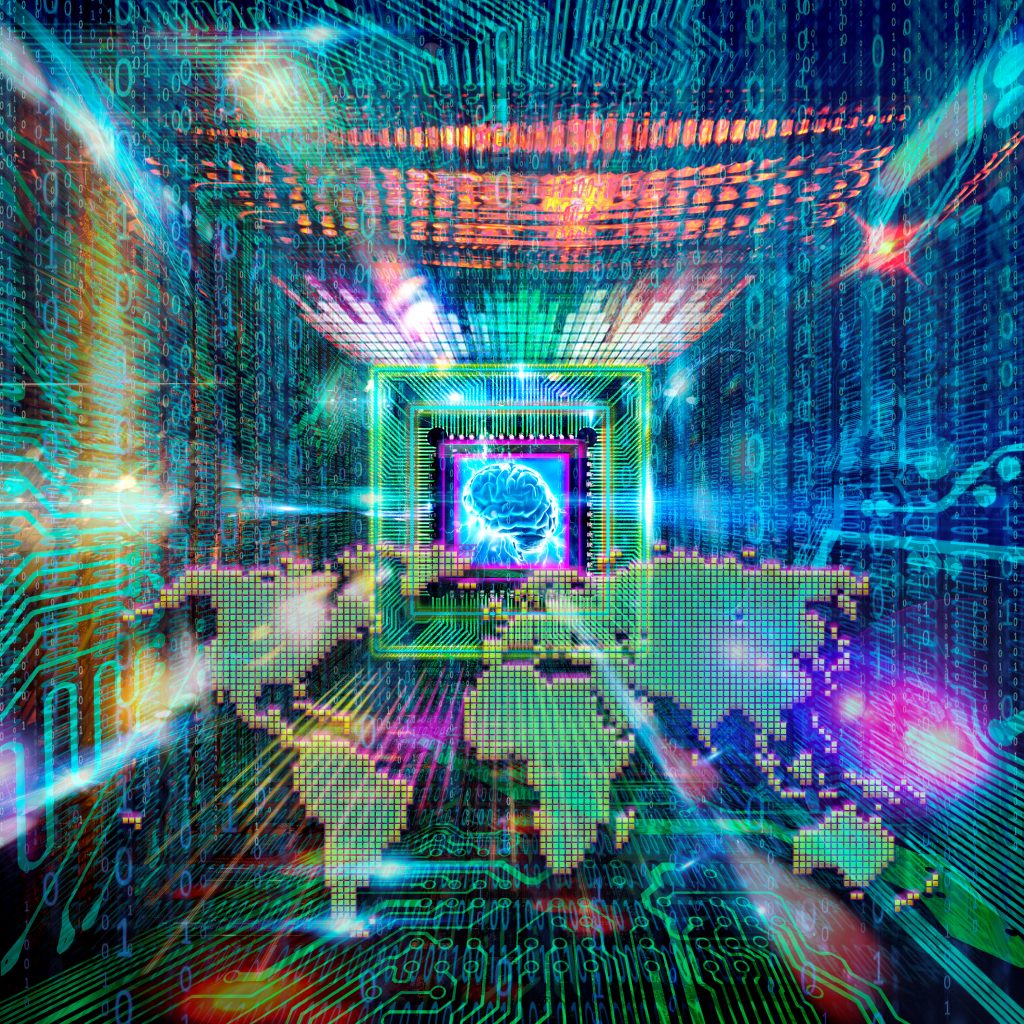 ISTOCK/PAINTER72
ISTOCK/PAINTER72 Realizing the Potential, Protecting the Value
The next generation of socio-technical system can be seen as a kind of “focal point” for the convergence of a number of current trends in computing, information systems, and information technology. These trends include the technology-driven instrumentation of infrastructure by ubiquitous computing and/or “intelligent” devices, with the prefix “smart” now taking precedence over the prefix “e-,” i.e. SmartGrids, SmartCities, SmartMotorways, etc., rather than the e-commerce. e-health, e-learning initiatives commonplace at the turn of millennium.
It also includes advances in Artificial Intelligence fueling the surge of interest in, for example, driverless cars and data analytics. A third trend is the advances in rule-based multi-agent systems and self-organizing systems, i.e., distributed computer systems in which the interaction of components is dependent on the representation of, reasoning with, and application of conventional. mutually-agreed-upon rules; such systems have had numerous applications in commerce (i.e., contracts and service level agreements), law (e.g., alternative dispute resolution) and governance. Yet another trend with profound social and economic implications is the maturation of peer-to-peer (P2P) computing and the service-oriented architecture paradigm in the (so-called) platform revolution (fully networked and interconnected markets for goods and services) and *-as-a-service (where the “*” stands for just about anything that can be thought of: it can be supplied as a scalable, on demand, seamless configuration of software and hardware — for a price).
Consequently, the next generation of socio-technical system will be underpinned by the most advanced and potentially most “intelligent,” technology so far invented; but the “socio-” part — involving human behavior, nondeterministic decision-making and interactions, complex social structures like organizations and institutions, culture, morality, ethics, and above all values — are essentially unchanged, except to the extent that they are irrevocably changed by the technology itself. Indeed, some commentators (1), (2) have even suggested that the debate over the driverless car is just a preliminary skirmish in the long-term battle for the future of humanity, i.e., what does complete automation of manual tasks imply for full-time employment and the welfare state, and the values that come with it: sense of belonging, identification with an organization, pride in a “Job well done,” social interaction and opinion dissemination, self-actualization, and so on.
The result is that the next generation of socio-technical system presents both un-paralleled opportunities for participatory self-organization, citizen empowerment, and grassroots activism, and corresponding risks in disenfranchisement, exclusivity, and disempowerment. There is the threat of becoming “slaves to the algorithm,” leaving no opportunity for “wriggle room” or the application of common sense, being left with no space for the principled violation of policy (e.g., forgiveness). We could be outsmarted by the machines to the point of becoming “gombies” (i.e., Google zombies). There could be misinterpretation of predictive analytics whereby predictions become self-fulfilling prophesies, or we could face the misuse of psychometric data to influence the outcome of elections.
The articles in this special section are concerned with addressing this tradeoff between opportunities and threats. Critically, all the papers offer a diagnosis and a constructive recommendation. They are diagnostic in the sense that they study and analyze the threats. Once we know what the threats are, we examine how to constructively design, deploy, and “leave to their own devices” (as it were) these valuable, but potentially vulnerable, socio-technical systems, in order to neutralize the threats, and realize the benefits. The effort here is to identify essential requirements for responsible and responsive design of the next generation of value-oriented socio-technical systems.
In “Value-Sensitive Design for Peer Production Systems,” Agnie-szka Rychwalska and Magdalena Roszczyn’ska-hurasln’ska focus on peer-production systems and, using Wikipedia as an exemplar, demonstrate the importance of values, and how commons-based collective agency is a primary quality of peer-production systems that can elevate them above “standard” production lines. In “Change is Afoot: Applying Change Management Theories to Self-Organizing Socio-Technical Systems,” Jan-Philipp Steghöfer argues that adaptation, managing adaptation, and human involvement in deciding adaptation are key attributes for successful long-lived socio-technical systems, and that key insights from change management (as developed in the psychological study of organizational behavior) need to be encapsulated in the design and operation of sociotechnical systems. In “Technological Impact on Values and Pathologies in Socio-Technical Communities,” Ada Diaconescu and Jeremy Pitt address the issue of governance, particularly how technological advances can disguise the actual distribution of power and control, and distort the critical knowledge management processes that enable governance of a sociotechnical system to be responsive, inclusive, and “fair.” Like the preceding two papers, they advocate that certain properties (transparency, responsible engagement, and perceptible impact) should all be primary system design requirements, not afterthoughts grafted to system functionality. This advocacy is generalized by the final paper in the Special Section, “Socially-Sensitive Systems Design,” by Kirstie Bellman, Jean Botev, Hanno Hildmann, Peter Lewis, Stephen Marsh, Jeremy Pitt, Ingo Scholtes, and Sven Tomforde, who use the sociological theories of Piotr Sztompa to propose a new design methodology to support this approach.
The papers in this Special Section have been produced as a consequence of Dagstuhl Seminar 15482 “Social Concepts in Self-Organising Systems” (4), and deep thanks are due to all the participants of the conference, and the Dagstuhl administrators who made it possible.










 JOIN SSIT
JOIN SSIT